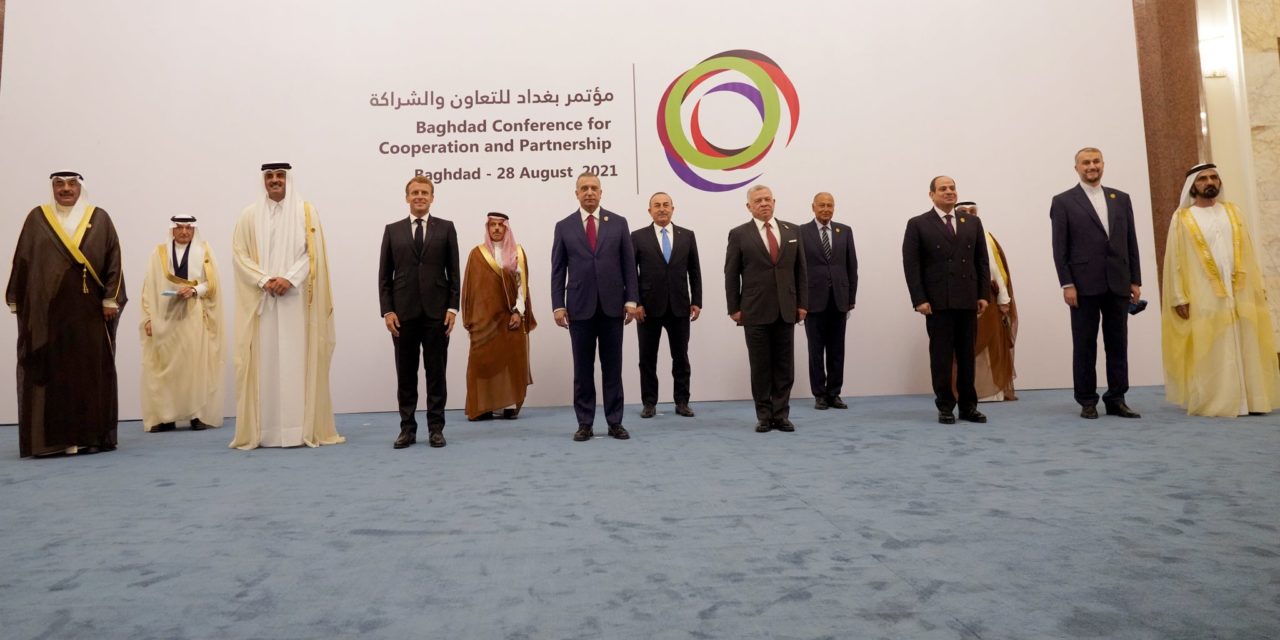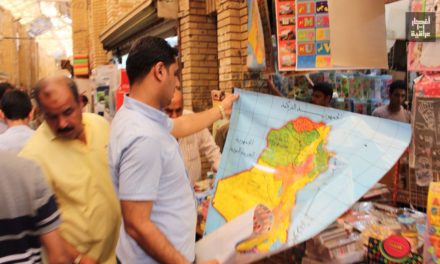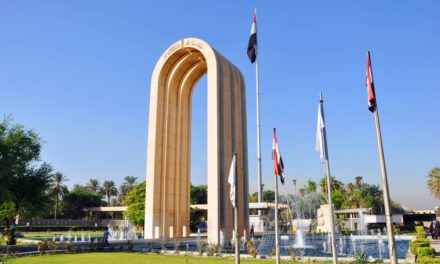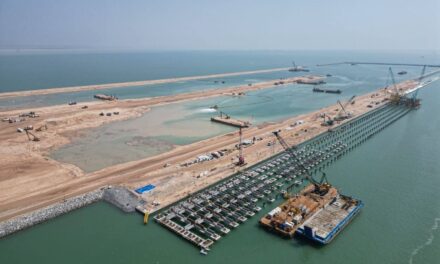(Photo: PMO Media Office)
Even the most timid of observers cannot say that the Baghdad Conference fulfilled any of its goals. There was no evidence of any changes or improvements in international relations nor any shifts in the positions maintained by regional powers. It is important to mention that many of the problems that exist between Iraq and its neighbours were not resolved within the framework of the conference.
Nevertheless, there were some positive aspects to the conference for certain parties in the region, most notably the meeting between Egyptian President Abdel Fattah Al-Sisi and the Emir of Qatar, Sheikh Tamim bin Hamad Al-Thani. However, this meeting was already in the cards and an expected outcome of the conference.
Therefore, what was expected from the conference and what was the host country pinning its hopes on? Iraq had counted on Saudi Arabia’s Crown Prince, Mohammed bin Salman, and Iran’s new president, Ibrahim Raisi, to attend the Baghdad Conference, as a precursor to establishing dialogue aimed at reviving relations between the two important and influential regional powers. It had also been anticipated that Turkish President Recep Tayyip Erdogan would attend the conference in order to meet with the Crown Prince of Abu Dhabi and with Mohammed bin Salman, to open a new chapter in easing the tense relations between the three countries.
Baghdad also expected the Emirati Crown Prince, Mohammed bin Zayed to travel to Iraq, in his capacity as the most influential decision-maker in the Emirates, and to meet with the presidents of Iran and Turkey, an event that would have added value to the Baghdad Conference. In the end, none of these key players bothered to come to Iraq. Neither Mohammed bin Salman, nor Ibrahim Raisi, nor Mohammed bin Zayed, nor Recep Tayyip Erdogan came to Baghdad. Iran, Saudi Arabia, and Turkey all sent their foreign ministers and the UAE appointed Mohammed bin Rashid, the Emir of Dubai, to head its delegation to Baghdad. Furthermore, Baghdad’s attempts to reel in the Emir of Kuwait or even possibly its crown prince, were also unsuccessful.
Despite the evident shortcomings of the whole occasion, the Baghdad Conference was beneficial for two individuals: Mustafa Al-Kadhimi and Emannual Macron. Iraq’s prime minister was able to host the French president in a display of strength stemming from personal skills and connections, not necessarily tied to the office of the premiership.
The French president also tried to make the most of the conference with French elections scheduled in eight months, as the Middle East has always been a political destination for France. From Lebanon to Syria and to North Africa, certainly from the perspective of colonial expansionism, Paris has continually aimed to achieve influence. Macron has yet to produce any tangible results in any of the issues he has pursued in the Middle East, be it in Lebanon or Syria, or even through the French government’s role in the Iranian nuclear agreement; none of his efforts have come to fruition. Therefore, it can be said that Iraq is a new landscape for Macron and riding fast on the coattails of the Baghdad Conference, Paris signed with Baghdad the mega Total Oil Agreement. Macron also announced France’s intention to open schools and a consulate in the city of Mosul.
Iraq has gone to great lengths to act as a bridge between its neighbouring countries, especially Iran and Saudi Arabia. However, turning a new page in the relations between these neighbouring countries, is not only a mammoth task but also possibly a far-fetched and unattainable expectation. Many Arab states still have numerous unresolved differences with Iran, which cannot be ignored in the hope of defining a new relationship with Tehran.
Ultimately, if Iraq seeks to resolve its conflicts with neighbouring countries, and act as an honest broker in the conflicts that plague the region, then the Baghdad Conference may have provided a glimmer of hope for its aspirations. However, the concept of conflict resolution is fundamentally different from that of reconciliation; conflict resolution usually involves introducing a series of strategies to deescalate the level of conflict. By contrast, the process of reconciliation depends on meeting the respective long term needs and interests of the parties to the conflict by mutual agreement or concession of the parties. This is what Iraq needs to focus on now.

Hayder Al-Khafaji
Hayder Al-Khafaji is a researcher on Middle Eastern affairs with a specialist focus on Iraq-Iran relations. He holds a postgraduate certificate in Islamic Studies from Birkbeck College, University of London, and a master’s degree from Middlesex University where he is currently completing a Professional Doctorate in Muslim cultures.










